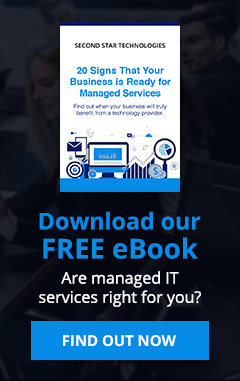Understanding Managed Service Providers: An Introduction
Managed Service Providers (MSPs) are specialized companies that manage and assume responsibility for a range of IT services on behalf of their clients, typically under a subscription model. These services include managing networks, applications, infrastructure, and security systems. MSPs are designed to handle the day-to-day operations of a company's IT setup, allowing businesses to focus on their core activities while benefiting from professional, up-to-date IT support. Partnering with an MSP aims to improve operational efficiency, enhance security, and ensure technology systems are always running smoothly and up to date. This partnership can be particularly valuable for businesses without extensive in-house IT capabilities, as it provides access to expertise and technologies that might otherwise be out of reach.
The Crucial Role of MSPs in Modern Business Operations
In today's IT-driven business landscape, Managed Service Providers (MSPs) have become indispensable for companies seeking to navigate the complexities of technology. The rapid pace of digital transformation requires businesses to adapt quickly, ensuring their IT infrastructure is robust, secure, and capable of supporting their operational needs. MSPs play a crucial role in this environment by offering specialized expertise and resources that many businesses, especially small to medium-sized enterprises (SMEs), may not possess internally.
MSPs enhance a company's ability to innovate by managing routine IT tasks, such as system updates, security monitoring, and backup management. This allows businesses to focus on core activities and strategic growth. Moreover, they provide scalability, enabling companies to adjust their IT resources in response to growth or changing market conditions without significant capital investment in IT staff or infrastructure.
Security is another critical area where MSPs add significant value. With cyber threats evolving rapidly, MSPs offer advanced security measures, continuous monitoring, and compliance management, helping protect sensitive data and reduce the risk of breaches. This level of security assurance is vital for maintaining customer trust and meeting regulatory requirements.
Furthermore, MSPs contribute to operational efficiency by ensuring high uptime, quick resolution of IT issues, and implementation of the latest technologies. Their proactive approach can prevent problems before they disrupt business operations, ensuring continuity and reliability.
In essence, MSPs are more than just service providers; they are strategic partners that enable businesses to leverage technology effectively, secure their operations, and position themselves for future growth in the competitive IT-driven marketplace.
What is an MSP?
Managed Service Providers (MSPs) play a pivotal role in today's business environment by offering a broad spectrum of IT services and solutions tailored to meet their clients' diverse needs. At its core, an MSP is a company that remotely manages a customer's IT infrastructure and end-user systems, typically on a proactive basis and under a subscription model.
Role in Managing IT Infrastructure Remotely
MSPs assume the responsibility for the entirety or portions of a business's IT systems, as agreed upon in a service-level agreement (SLA). This management can include round-the-clock monitoring of systems, managing network operations, software and hardware updates, cybersecurity protection, and support services. By taking over these tasks, MSPs allow businesses to focus on their core competencies rather than being bogged down by complex IT issues.
Offering a Wide Range of IT Services
The range of services MSPs provide is broad and varied, designed to cover virtually all aspects of a company's IT needs. These services include but are not limited to:
- Managed Security: Comprehensive cybersecurity measures, including firewalls, endpoint security, and intrusion detection systems to protect against threats.
- Cloud Services: Deployment, management, and support for cloud computing resources and applications, enabling businesses to leverage the scalability and efficiency of cloud technology.
- Data Backup and Recovery: Solutions to ensure critical data is backed up regularly and can be quickly restored after a data loss event, minimizing downtime.
- Network Management: Continuous oversight of a company's network infrastructure to ensure optimal performance and uptime.
- Software as a Service (SaaS): Providing access to applications as a service over the internet, eliminating the need for internal maintenance and support.
- Support Services: 24/7 helpdesk services for immediate IT support needs, ensuring issues are promptly addressed.
Emphasizing Performance Improvement, Operational Efficiency, and Security Enhancement
The overarching goal of partnering with an MSP is to improve business performance and operational efficiency. By outsourcing IT management tasks to specialists, businesses can reduce downtime, improve system reliability, and scale their IT operations as needed without the significant overhead of hiring additional staff. Furthermore, with the ever-present threat of cyberattacks, MSPs enhance a company's security posture by implementing the latest security measures, conducting regular audits, and ensuring compliance with relevant regulations.
In summary, MSPs are invaluable partners in today's IT-driven business landscape, offering services designed to streamline operations, enhance security, and improve performance. By leveraging the expertise and capabilities of MSPs, businesses can navigate the complexities of modern IT infrastructure with greater ease and confidence.
Benefits of Working with a Managed Service Provider (MSP)
Partnering with a Managed Service Provider (MSP) offers a myriad of advantages that can significantly enhance a company's operational efficiency, security, and overall performance. Below are two key benefits of working with an MSP that underscore their value in today's IT-driven business landscape.
Tailor-Made Solutions
One of the most significant benefits of working with an MSP is receiving customized IT solutions aligned with your company's needs, strengths, weaknesses, and regulatory requirements. Unlike one-size-fits-all solutions, MSPs take the time to understand your business processes, goals, and IT environment. This deep dive into your company's ecosystem allows MSPs to craft strategies and solutions that address your current IT needs and anticipate future challenges. Whether enhancing data security, improving network infrastructure, or implementing cloud services, MSPs ensure that every aspect of your IT setup is optimized for your unique business context. This customization extends to compliance and governance, where MSPs can help navigate the complex landscape of industry regulations, ensuring your IT operations comply with legal standards and best practices.
Continuous Support
Another pivotal benefit of engaging with an MSP is providing round-the-clock support. IT challenges, and system failures don't adhere to a 9-to-5 schedule; they can occur anytime, often with little warning. MSPs offer 24/7 monitoring and support, ensuring that issues are swiftly identified and resolved, often before they impact your business operations. This continuous support encompasses everything from routine maintenance and updates to emergency response and problem resolution. Moreover, with remote management capabilities, MSPs can address many issues without needing on-site visits, minimizing disruptions and downtime. This level of support ensures that your IT systems remain operational, secure, and up-to-date, allowing you to focus on core business activities without the added stress of managing IT crises.
How to Choose the Best Managed Service Provider (MSP)
Selecting the right Managed Service Provider (MSP) is a critical decision for businesses that aim to leverage external expertise for their IT operations. Here are several factors to consider to ensure that you partner with an MSP that aligns with your business needs and goals.
Evaluate the MSP's Track Record
Begin by researching the MSP's history, focusing on case studies, testimonials, and any endorsements they may have. These resources can provide insights into the MSP's ability to deliver results, expertise in handling challenges similar to yours, and the satisfaction levels of their current and past clients. A reputable MSP will have a proven track record of success, showcasing its reliability and the positive impact it has had on businesses it has partnered with.
Assess the Range of Services Offered
Businesses' IT needs can be vast and varied. Ensure the MSP you consider offers a comprehensive range of services that cater to your current requirements and can adapt to future technology trends, especially in critical areas like cybersecurity. An MSP that stays ahead of tech trends can help your business remain competitive and secure.
Consider Support and Response Time
Reliable support and quick response times are essential to minimize disruptions to business operations. Evaluate the MSP's support model, ensuring they offer 24/7 assistance and have protocols for rapid response to IT issues. Timely support can significantly reduce downtime and mitigate potential losses.
Security and Backup
Given the rising threats in the digital landscape, prioritize MSPs with robust security measures and backup solutions. These are crucial for protecting sensitive data and ensuring business continuity. Assess their security protocols, compliance standards, and how they manage data recovery in the event of an incident.
Guidance on Workflow Options
An MSP should do more than just manage your IT infrastructure; they should also provide strategic advice on optimizing your technology landscape to enhance efficiency and productivity. Look for an MSP that understands how technology can be aligned with your business processes for optimal performance.
Industry Expertise
MSPs with experience in your specific industry can offer more tailored solutions and are likely to be familiar with the regulatory and compliance requirements you face. This expertise ensures that the IT strategies implemented are relevant and effective for your business environment.
Scalability
Your MSP should be able to scale its services to fit your company's growth. Scalability ensures that your IT infrastructure can grow as your business expands without switching providers. Discuss scalability options and plans with potential MSPs to ensure they can support your long-term growth.
Avoid Proprietary Products
While proprietary products offered by MSPs might promise seamless integration and optimization, they can also lock you into their ecosystem, making it difficult to switch providers or integrate third-party solutions in the future. Be cautious of MSPs that heavily push their proprietary solutions unless they offer clear, unmatched benefits.
Conclusion: Selecting the Right Managed Service Provider
To find the ideal Managed Service Provider (MSP), businesses must consider many factors to ensure that their chosen partner can robustly support and enhance their IT operations. The process involves:
- Evaluating the MSP's track record for reliability and success,
- Assessing the breadth of services offered to meet current and future IT needs, and;
- Ensuring the availability of responsive support to minimize operational disruptions.
Key to this selection is the emphasis on security measures and backup solutions that safeguard the company's data against ever-evolving cyber threats. Furthermore, selecting an MSP that offers strategic guidance on workflow optimizations cannot be overstated, as this can significantly impact efficiency and productivity. The relevance of industry-specific expertise is also paramount, ensuring that the MSP's solutions are finely tuned to the business sector's unique challenges and regulatory requirements.
Scalability is critical, as the MSP must adapt to the company's growth and evolving needs without compromising service quality. Caution should be exercised regarding proprietary products, which, while offering seamless integration, might limit future flexibility and choice.
In conclusion, the essence of selecting the right MSP lies in finding a partner that not only brings a wealth of technical expertise and a comprehensive suite of services but also deeply understands and aligns with the specific needs and nuances of the company's industry. This partnership is pivotal in navigating the complexities of today's IT landscape, driving operational excellence, and securing a competitive edge in the market. Businesses are encouraged to embark on this selection with a detailed and discerning approach, ensuring their IT infrastructure and strategic goals are in capable hands.
Elevate Your Business Operations Through Unmatched IT Excellence: Choose Second Star Technologies
Are you ready to take your business to the next level with optimized IT infrastructure? Second Star Technologies can help.
We offer a wide range of IT services, including network management, security solutions, and 24/7 support. Our team of experts will work with you to understand your needs and develop a customized solution to help you achieve your business goals.
With Second Star Technologies, you can be confident that your IT infrastructure is secure, reliable, and scalable. We'll help you free up your time and resources so you can focus on what you do best: growing your business.
Contact us today to learn more about how we can help your organization reach its full potential.

